- Home
- Kathryn Lasky
The Escape
The Escape Read online
Contents
Title Page
Map
Epigraph
WATER
The Foal
CHAPTER 1: Drinking a Star
CHAPTER 2: “Estrella Is Her Name!”
CHAPTER 3: The Shadow in the Flash
CHAPTER 4: Forgetting
CHAPTER 5: The Sea Floor Rises
CHAPTER 6: Scarlet Feathers
CHAPTER 7: Uncaged
CHAPTER 8: Broken Gods
CHAPTER 9: We Are Gods Here!
CHAPTER 10: When the Gods Be Mortal
EARTH
CHAPTER 11: “We Are the First Herd!”
CHAPTER 12: Rumps to the Wind
CHAPTER 13: Snow and Silence
CHAPTER 14: The Dawn Horse
CHAPTER 15: The Spirit City
CHAPTER 16: Little Horse
CHAPTER 17: To Be Owned?
CHAPTER 18: Pego
CHAPTER 19: Encounter
CHAPTER 20: A Trickster Comes Calling
CHAPTER 21: The Door in the Mist
FIRE
CHAPTER 22: Trapped!
Author’s Note
About the Author
Copyright
“Horses have a way of entering dreams and visions, even those of people who do not know exactly what they are dreaming about.”
— Deanne Stillman
The mare felt the foal shift inside her and kicked her leg in discomfort. The foal was coming soon, and the mare should have been on four legs instead of buried in a hold, hanging in a sling rocked by every wave the ship encountered. The mare should have been surrounded by straw or, better yet, soft grass in a meadow. What a place to be born! she thought. A pitching ship in the middle of a sea! The mare could sense the restlessness of the other horses around her. They knew what was about to happen.
The beam of the ship was wide, and ahead of her she could see at least eight other horses, ears twitching. The smaller animals — the goats and the pigs — were in separate stalls and out of sight. But it was the horses the mare cared about. She could see their ears flick forward, listening for the men, and then pivot back to her to hear if the birth had started.
They were in the mid-deck hold, near the pillars of the brigantine’s two masts. Their stalls were padded with bales of straw so the horses wouldn’t be injured when their slings swung too violently. The mare looked down at her legs hanging uselessly in the shadows. Her hooves barely touched the floorboards.
The mid deck was sweltering. Breezes couldn’t reach the hold and there was little light. The horses couldn’t sense the time of day. It was never bright nor completely dark; there was only shadow and a perpetual dimness that was not like any dawn or twilight the mare had ever known.
The last time she had foaled, it had been in a stall on land — dry, unmovable land — and the time before that, in a meadow. It was of course the best place of all to give birth. She remembered that colt well. His coat was beautiful, dappled like a herd of small moons sliding behind clouds. She called him Sombra Luna, Shadow Moon. And now another was on its way. Was it possible, she wondered, that the Seeker and his men did not know? She herself had been surprised. She thought she was much too old to foal. But surely they had seen her belly when they fitted the sling around her on the day before the voyage began from First Island. No one had said anything, but perhaps they were anticipating a short trip and the distances had turned out to be greater than they’d thought. She’d heard the blacksmith and the groom talking about how long the voyage was taking. The groom was just a boy, as gawky as the foal soon to be born.
She felt a sudden wrenching pain and gasped. The young groom leapt from his hammock and rushed to her stall. The ocean had grown a bit calmer, but the mare’s sling swayed back and forth in a disconcerting rhythm. The groom stroked her head. Then his eyes fell upon the large stain that was spreading rapidly through the canvas of the sling.
“¡Dios mío!” he screeched.
Within seconds the blacksmith was there with another groom.
“It can’t be!” the blacksmith exclaimed.
It is! the mare thought. She gave him a withering gaze. The young groom’s eyes had fastened on a small wooden carving of a woman with a darkly stained face, her hands pressed together in prayer. His mouth moved as if he were speaking to her.
“Don’t pray to the Virgin, foolish boy. Get the doctor!” the blacksmith ordered.
Who’s foolish? thought the mare. All of you! The men had been all too obsessed with their dreams of gold to see that the old mare could be in foal.
The doctor came. The sling was lowered and the stall was quickly banked with more straw bales.
“¡Calma! ¡Calma!” the blacksmith whispered.
Was he telling her to be calm, or the sea? the mare wondered. She hoped it was the sea. Giving birth was hard enough on dry land, and the ocean seemed to be growing more boisterous. But she could take care of herself. What troubled her was the thought of her foal being born in the hold and confined to a sling. How would a foal ever learn to stand on this swelling sea? She groaned deeply and her eyes rolled back in her head. She could hear the groom praying. But the blacksmith and the doctor remained silent as they removed the sling and helped her lie down against the bales of straw.
Time passed, but the mare couldn’t tell how much. The perpetual half-light in the hold hardly changed from morning to afternoon to night. She felt the doctor and the blacksmith both pulling. The front legs were halfway out. One more pull? No, two.
“A filly!” the blacksmith finally said. “And so quick!”
“She’s foaled before,” the doctor said while clearing off the smooth white sac that covered the foal’s body.
The mare turned her head and began licking her newborn’s face. As she licked the foal’s face clean, she saw a lovely white mark emerge on its pale forehead. The mare nickered with soft delight.
“Look!” the groom exclaimed. “She’s trying to stand already.”
The little filly staggered onto her legs, which seemed to be longer than her body. Although she had given birth twice before, the mare could never get used to how long a foal’s legs were. Even though the filly was smaller than her dam, her legs were almost as long.
The filly staggered a step and fell down, her legs in a scramble. “Too many legs!” her dam nickered. “You’ll have time to sort them out. You’ll see!”
But just then, the seas roughened. A straw bale tumbled and knocked the filly down on her next try at standing. She went into a rolling tumble.
“Get her in a sling. And the mare, too. Get Perlina in a sling,” cried the blacksmith.
“And what do we call this one?” the older groom asked, nodding toward the filly.
“Jacinta!” said the tall man just arriving. He was the Seeker, the captain of the ship. He named the horses. “Let us give thanks for this blessing. Let us take it as a sign of good fortune, of grace and the merit of God. Let us pray.” And then, despite the rolling of the ship, the men fell to their knees beneath the statue of the dark Virgin.
“Good fortune?” the mare muttered as she looked across at her filly. We are in separate slings and they call that good fortune and grace of their God? How will my filly nurse? How will she learn to stand? And Jacinta! she raged silently. He names my foal after his mistress!
“By my withers!” She whinnied now loudly and in protest. However, between the roar of the sea and the voices of the men — for the padre had now come down to lead them in prayer — no one heard her.
The mare looked over at her foal. The mark on the filly’s forehead looked like a swirled star. And the mare knew, whatever the man called her filly, she would name the foal Estrella. “Estrella! I shall call you Estrella!” she nickered. The foal looked into her mot
her’s huge dark eyes and seemed to understand. She had been named for something bright and luminous, something that existed beyond the dark, rank air of the hold.
The men found a way for the filly to nurse. The young groom or the blacksmith would come and remove the filly from the sling, then bring her to her dam and hold her while she drank. “Steady there, Jacinta,” they would say. “Easy, Perlina. Here comes your filly.” They were nothing but gentle and kind. As the filly grew, it required both the young groom and the blacksmith to steady her.
One time when she had been placed back in her sling, Estrella turned to her dam.
“Mamita. There is something I don’t understand.”
“What’s that?” The mare realized early on that she had given birth to a very inquisitive foal. It seemed as if the more Estrella grew, the more questions she had. Many the mare did not know how to answer.
“I don’t understand why they call me Jacinta when you call me Estrella.”
“The Seeker named you Jacinta. Not me. He named you for his mistress! I named you for the star on your forehead. That’s your true name.”
That was the beginning of the questions that were the hardest to answer — What is a star? What is the sky? What is a meadow? The foal’s questions never ceased.
In this hold without seasons, without day or night, the one measure of time for Perlina became how much her foal grew. She could see that the filly was larger. If Estrella were to stand instead of sway in her sling, she would have been much taller than on the day she had been born. When she was removed from the sling for nursing, Estrella had to duck quite a bit to reach the milk. The mare figured that at least the cycle of one moon had passed since the filly’s birth.
The days were changing. The wind had died and an eerie hush fell on the ship as the seas grew flat. Only the cries of the seagulls or the occasional creak of the ship or flap of a sail cut the stillness. But the canvas was bereft of wind.
The silence of the ship bothered the mare most — the silence and the stillness, for nothing seemed to move. Even the sling barely moved now. The mare sometimes attempted to remember the feel of the ground under her hooves. She cast a glance at her foal. For all her questions, the filly never asked about running or galloping. She did not know such movement existed, and that made the mare sad. Estrella stood briefly to nurse, but she had never bucked or kicked up her heels or felt her black mane lift in the wind, and she had hardly taken any steps, let alone run. It was all so peculiar. And now even the nursing times had grown shorter as the water was rationed and the mare’s milk had begun to dwindle.
Equally strange to the mare was that her filly had never seen the sky — not the blueness of the day nor the black of a night. Estrella’s life had been the sling and the walls of the stall. Unlike her dam, the filly had never been put out to pasture to graze and watch the comings and goings of the night creatures — the badger, the fox, the swooping bat, the bush rat, the owl or the moth taking wing. Most of all, the filly had never stood in the long grass on a summer evening and witnessed the sliding spectacle of the stars as they rose and made their transit across the night. She’d never seen a bright moon sailing high overhead in all its wondrous shapes as it waxed and waned throughout its cycles.
Meadow life seemed so long ago, before the mare had crossed an ocean with the Seeker, before they had landed on First Island in the New World and then set sail again. The fields were not so different in this New World, nor was the sky, but the stars were arranged in a different way. Still, there was one star the mare could always find. It never seemed to move. And she had gotten used to the new stars. There was one cluster with five stars that resembled a pattern like the cross the padre wore against his black clothes.
The mare kicked out with her back legs. Her filly should be able to buck, instead of lie helpless in a sling as the ship bucked. Foals bucked almost as soon as they stood. That was what being a young horse was all about. One couldn’t buck when one carried a rider. That would bring the crop down on the withers fast and sharp! But without a saddle, without a bridle — oh, how it felt to be free of the weight! One had to buck for the sheer joy of it. A young horse wasn’t broken for riding for months. While they were free from saddle, bit, and rider, they could buck all they wanted, and they wanted to buck a lot. It was good for them. It helped them grow, gave them strength.
Sometimes, Perlina had frightening dreams about her filly. She dreamed that Estrella’s legs withered away, hanging like little dead twigs from her body. She stole a glance at her filly’s legs. Were they shrinking before her eyes?
The mare tried to explain the world to Estrella, tried to tell her of the sky with its stars sparkling in the night, and the land and open meadows. Soon, Estrella began to pester her dam for star stories.
“What do you mean, ‘twinkle’?” she would ask.
How do I explain the twinkle of a star to one who has never seen the night sky? her dam thought.
“It’s a little bit of light that shows up suddenly in the darkness of the night.” But of course the filly only knew the shadows of the hold. Without dark, it was hard to know light, and without light, it was hard to imagine the pitch-blackness of the night.
Still, the filly was particularly excited about the star pictures that her dam sometimes described.
“There’s a star picture that looks like us? A horse! Really?” the filly asked.
“Really.” The mare hesitated. “Well, with one small difference.”
“What’s that?”
“It has wings.”
“Mamita, are you loco? Wings like the birds you told me about? The ones we hear up there?” She tossed her finely shaped head up.
“Yes, but on a star horse. It’s not real.”
“If it’s not real, what can it do? You said when we get to land, I’ll be able to run and jump. It can’t do that.”
“It’s very helpful to the Seeker and the sailors. The star pictures can guide them across the oceans.”
The filly seemed to think for a long time before she tossed her dark mane and asked another question. “Could it guide us?”
The question shocked the mare. “Where are you planning to go?”
“I don’t know, but could the stars guide us?”
“I suppose so.” Perlina answered slowly, for she recalled how out in the pasture in the Old Land, the star that never moved seemed to hang directly over an ancient apple tree. “There is a star that never moves and you could use that as a guide — a guide star.”
“How do you find that star?”
“Easy. You know when the groom comes and puts the water in our bucket how he takes that cup, a dipper? There’s a star picture that looks like that, and the cup points directly toward the star that never moves. The men call it the North Star.”
“North Star,” the filly repeated softly. “Like my name. Estrella.”
The mare extended her head from the sling to lick the filly’s forehead. She so seldom got to touch her foal, so seldom got to run her lips along Estrella’s pale coat. Only when the groom or the blacksmith came and released them from the slings at nursing time — and the times for nursing had become fewer and farther between as the mare’s milk diminished. “I knew that your true name was Estrella as soon as you were born,” she said proudly. “You can see the star on your forehead’s reflection when they bring the water bucket, can’t you?”
“Yes, but, Mamita, you don’t have one. You have no star.”
“Your sire did.”
“They hardly ever bring the water bucket now. I might not see it again.”
“Oh, you will! You will!” The mare tried to speak cheerfully and cover her fear. For in these long windless days, the supply of water was dwindling rapidly. If only it would rain. Instead of the groom coming by three or four times a day to fill the buckets, they were lucky if he came twice a day. The horses’ tongues had begun to swell and their mouths became scummy. Their lips were parched and cracked. Each time they heard the footsteps of
the groom, the horses roused themselves and smacked their lips in anticipation. But a dull, lusterless light was creeping into their eyes, and the mare knew that soon, not even human footsteps would catch their attention.
“And your name?” the filly asked. “Why are you called Perlina?”
“For my coat. When I was born, the master said that I was the color of dark pearls, but my dam said I was truly the color of the light just before the dawn.”
“I don’t know the sky and I don’t know pearls,” the filly sighed. “Mamita, sometimes I feel so stupid.”
“You aren’t stupid!” the mare corrected. “You just haven’t seen anything but the inside of this ship, this sling.”
“So what are pearls?” Estrella asked.
“Jewels — decorations that the people wear.” She paused for a moment. “But I don’t think my coat is like decorations. I think my coat is more like the just before.”
“The just before?” Estrella cocked her head. “I don’t understand.”
The mare closed her eyes and tried to remember what it had been like in those meadows where she had grazed in the early hours of the morning. How hard it was to try to describe the whole world. She began to speak slowly.
“The just before is a time of day very early in the morning. I don’t know how to describe it exactly. If we were in a meadow, I could show you. But it is as if the darkness has grown tired. And it becomes dimmer and dimmer.”
“That sounds sad — the just before.”
“No! Not at all. It’s when a new day is about to foal and sunshine is coming. There’s the promise of the sun rising.”
The filly sighed and looked about. “There aren’t promises in here, are there, Mamita?”
Perlina was stunned. It was terrible to hear a young horse talk this way. She neighed urgently. “Listen to me, Estrella. There are still promises, even in dim light. The voyage will end. We shall get to land. You will run and buck.”
“And see the sky?”
“Yes, and see the sky and the night and the stars for which you are named.”
The filly wanted to believe her dam. Everything exciting seemed to happen out in a meadow where horses could graze. Estrella was not even sure what grazing was, but it sounded lovely. She had to believe her dam: The voyage would end. The sling would fade away like the darkness at the end of night. She would feel the earth under her hooves and stand in the long grass and even buck.

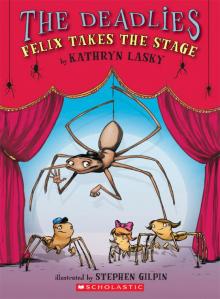 Felix Takes the Stage
Felix Takes the Stage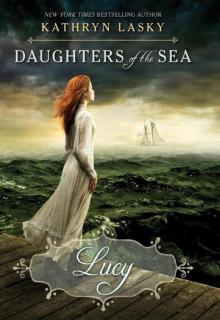 Lucy
Lucy Lone Wolf
Lone Wolf Broken Song
Broken Song The Shattering
The Shattering The Crossing
The Crossing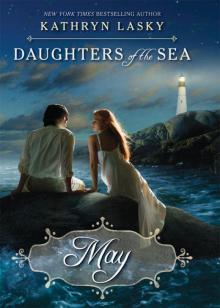 May
May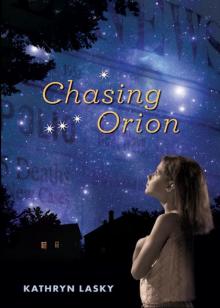 Chasing Orion
Chasing Orion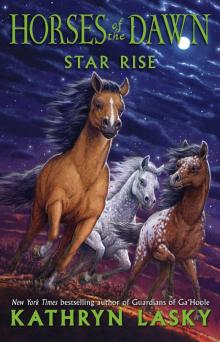 Star Rise
Star Rise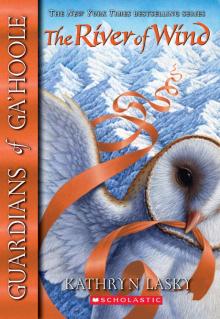 The River of Wind
The River of Wind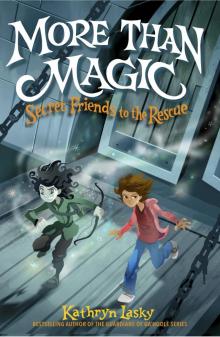 More Than Magic
More Than Magic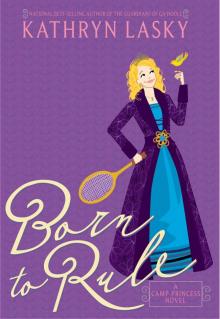 Born to Rule
Born to Rule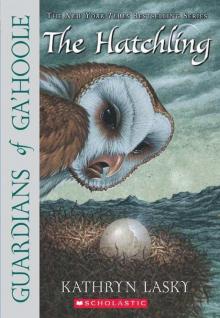 The Hatchling
The Hatchling The Rescue
The Rescue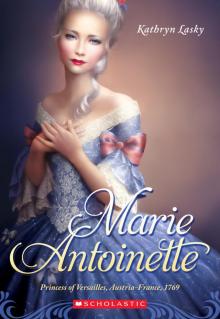 Marie Antoinette: Princess of Versailles, Austria - France, 1769
Marie Antoinette: Princess of Versailles, Austria - France, 1769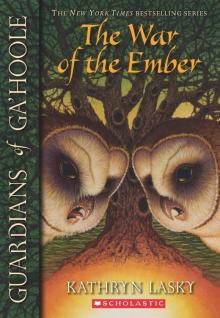 The War of the Ember
The War of the Ember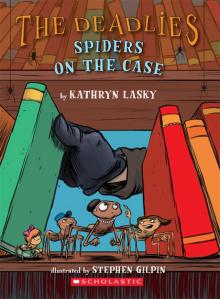 Spiders on the Case
Spiders on the Case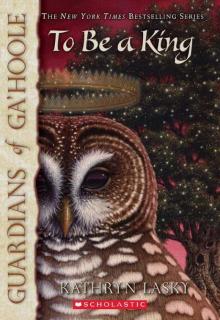 To Be a King
To Be a King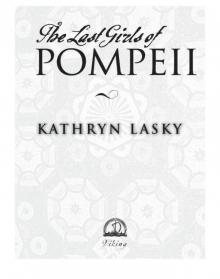 The Last Girls of Pompeii
The Last Girls of Pompeii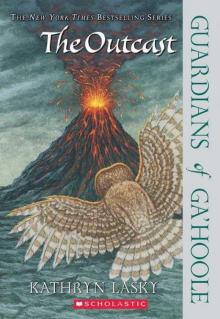 The Outcast
The Outcast Exile
Exile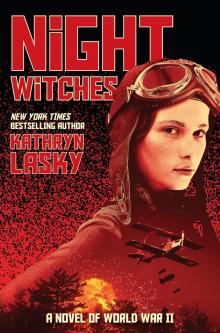 Night Witches
Night Witches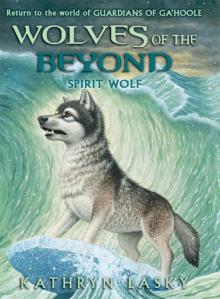 Spirit Wolf
Spirit Wolf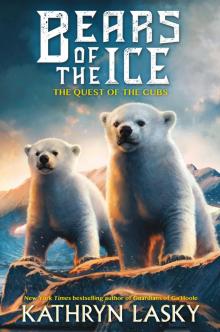 The Quest of the Cubs
The Quest of the Cubs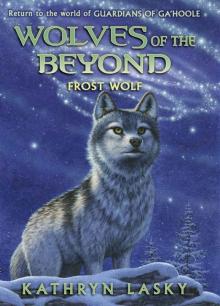 Frost Wolf
Frost Wolf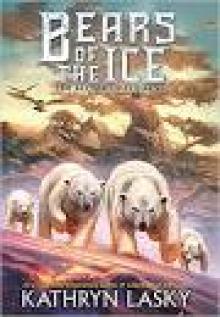 The Keepers of the Keys
The Keepers of the Keys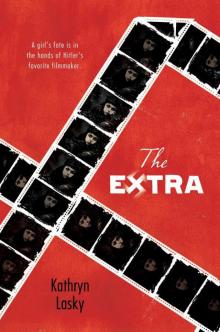 The Extra
The Extra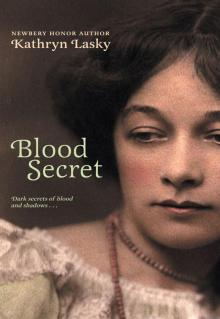 Blood Secret
Blood Secret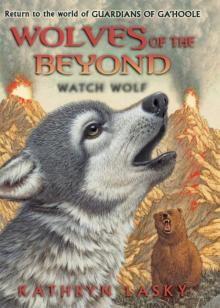 Watch Wolf
Watch Wolf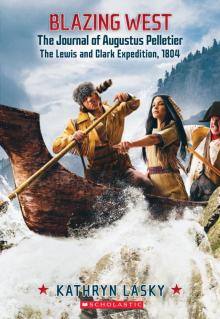 Blazing West, the Journal of Augustus Pelletier, the Lewis and Clark Expedition
Blazing West, the Journal of Augustus Pelletier, the Lewis and Clark Expedition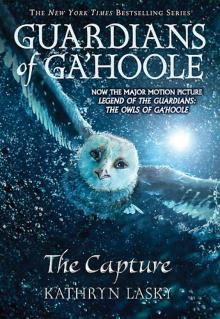 The Capture
The Capture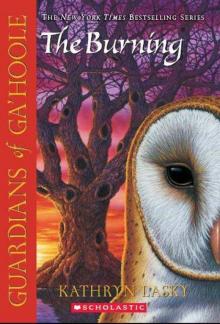 The Burning
The Burning The Journey
The Journey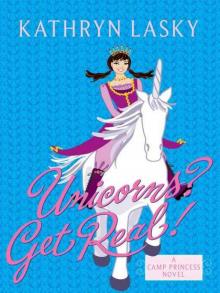 Unicorns? Get Real!
Unicorns? Get Real! The Escape
The Escape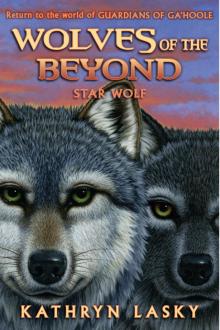 Star Wolf
Star Wolf Ashes
Ashes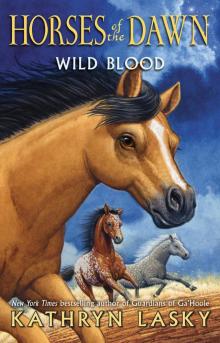 Wild Blood
Wild Blood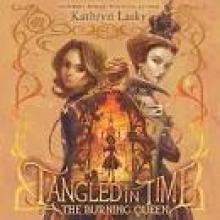 Tangled in Time 2
Tangled in Time 2 The Siege
The Siege Hannah
Hannah Elizabeth
Elizabeth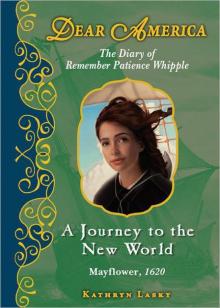 A Journey to the New World
A Journey to the New World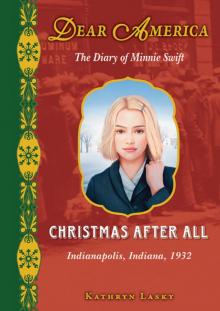 Christmas After All
Christmas After All Mary Queen of Scots
Mary Queen of Scots